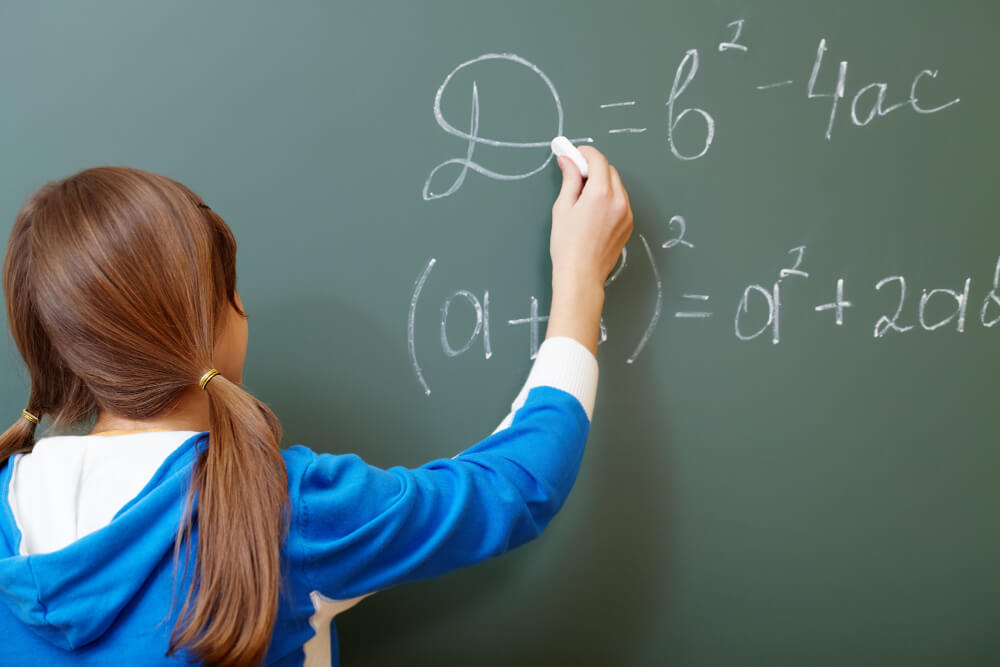
27 May 2025
Learning algebra is a core foundation for secondary students as they develop a deeper understanding of mathematics, and it will be necessary for students keen on careers that make significant use of science and mathematics. With various topics to learn, some students may find themselves confused by the seemingly abstract nature of algebra’s rules. Learning these fundamental rules is essential for any child’s later success in mathematics, even after they complete secondary school.
Algebra solves mathematical problems using variables, constants, and other key rules. Variables, represented by letters like x and y, can change value based on the context of the mathematical problem, while constants (represented by numbers) are fixed values that do not change.
A mathematical expression is a combination of variables, numbers, and operations (e.g., addition or multiplication) that forms a value. The sample above (x + 2y – 5) is an expression. An equation, on the other hand, contains an equal sign and shows how two expressions are related. For example, x + 2y – 5 = 4 is an equation.
Variables with similar terms, like a and 2a, are known as like terms. Like terms can be added, subtracted, multiplied, and divided with one another.
a + 3a = 4a
x × 2x = 2x²
Different terms, like 2x and 3y, are called unlike terms and cannot be added, subtracted, multiplied, or divided by other unlike terms.
When solving algebraic problems, you need to abide by the BODMAS order of operations. When solving an equation, you must follow this specific order of operations: Brackets, Orders (like powers and roots), Division/Multiplication, Addition/Subtraction.
When two terms are added or multiplied, the order of operations is not relevant:
(a + b) = (b + a)
(a × b) = (b × a)
This rule applies to both variables and constants.
(4x + 3y) = (3y + 4x)
(y + 3) × 2y = 2y × (y + 3)
The associative rule is much like the commutative rule, but covers expressions or equations with three or more terms.
a + (b + c) = (a + b) + c
a × (b × c) = (a × b) × c
To illustrate:
x + (2y + 5) = (x + 2y) + 5
2x × (3 × 4y) = (2x × 3) × 4y
Consider the following equation:
a × (b + c) = (a × b) + (a × c) = ab + ac
When a variable or constant (a) is multiplied by an expression in brackets (b + c), you distribute the multiplication of (a) to each term inside the brackets. Thus:
2 × (2x + 3y) = (2 × 2x) + (2 × 3y) = 4x + 6y
x × (3x + 2y) = (x × 3x) + (x × 2y) = 3×2 + 2xy
The rule also applies to expressions with more than three terms.

A mathematical equation can be considered a weighing scale, so any change to one side of the equation also affects the other side. Take this simple equation:
x + 7 = 12
To find x, you need to balance the equation by subtracting seven from both sides.
x + 7 – 7 = 12 – 7
x = 5
Algebraic identities are equations where the left-hand side of the equation is identically equal to the right-hand side.
(a + b)² = a² + 2ab + b²
(a − b)² = a² − 2ab + b²
a² − b² = (a + b)(a − b)
(x + a)(x + b) = x² + x(a + b) + ab
When the variables a, b, and x are assigned numbers, both sides of the equation will become balanced. If not, the equation is not an identity.
Learning these rules is vital in helping students understand how to apply them correctly to solve various algebraic problems. But equally important is their significance in their later years, whether math-related or otherwise.
The secondary school Maths syllabus comprises intermediate and advanced Maths concepts that require students to understand algebra and how to apply its rules and concepts to the new lessons they will learn. Even some science subjects, like Physics, require algebraic knowledge for various topics, while half of the Additional Mathematics syllabus requires a student’s understanding of algebraic equations and expressions to solve problems.
Algebra knowledge is not only used for solving complex Maths questions but also empowers a student’s cognition and encourages forward-thinking behaviours, especially in finding solutions to complex algebraic equations. It helps to develop a student’s mathematical reasoning, allowing them to identify variables and constants from a given problem and then apply the correct rules to find the right solution. The helpful boost to cognitive ability and critical thinking ensures that students can take on various interesting challenges and questions that encourage further self-development, which aids them well into their future.
In fact, algebra remains relevant once students begin their higher education journey. Just as it applies in several other secondary-level subjects, algebra is also essential for various majors that students are keen to pursue, ranging from engineering to economics. Maintaining one’s algebraic knowledge will ensure they have the fundamentals to thrive in these more challenging subjects and use what they learned to succeed in their careers.
After all, algebra has many real-life applications, as it can reliably help to chart various changes across nearly all human activities. That can include plotting population growth over a particular time frame, modelling hypothetical viral outbreaks, testing new scientific and mathematical hypotheses, and even forecasting sales performance to drive new growth.
At Matrix Math, we offer group tuition classes built on a structured programme aligned with the MOE syllabus. Our team of experienced tutors delivers lessons designed to strengthen students’ core fundamentals and problem-solving skills. With curated revision materials and consistent practice, we help students gain the confidence and competency needed to excel in PSLE Math. Contact us today to find out how our programme can support your child’s learning journey.